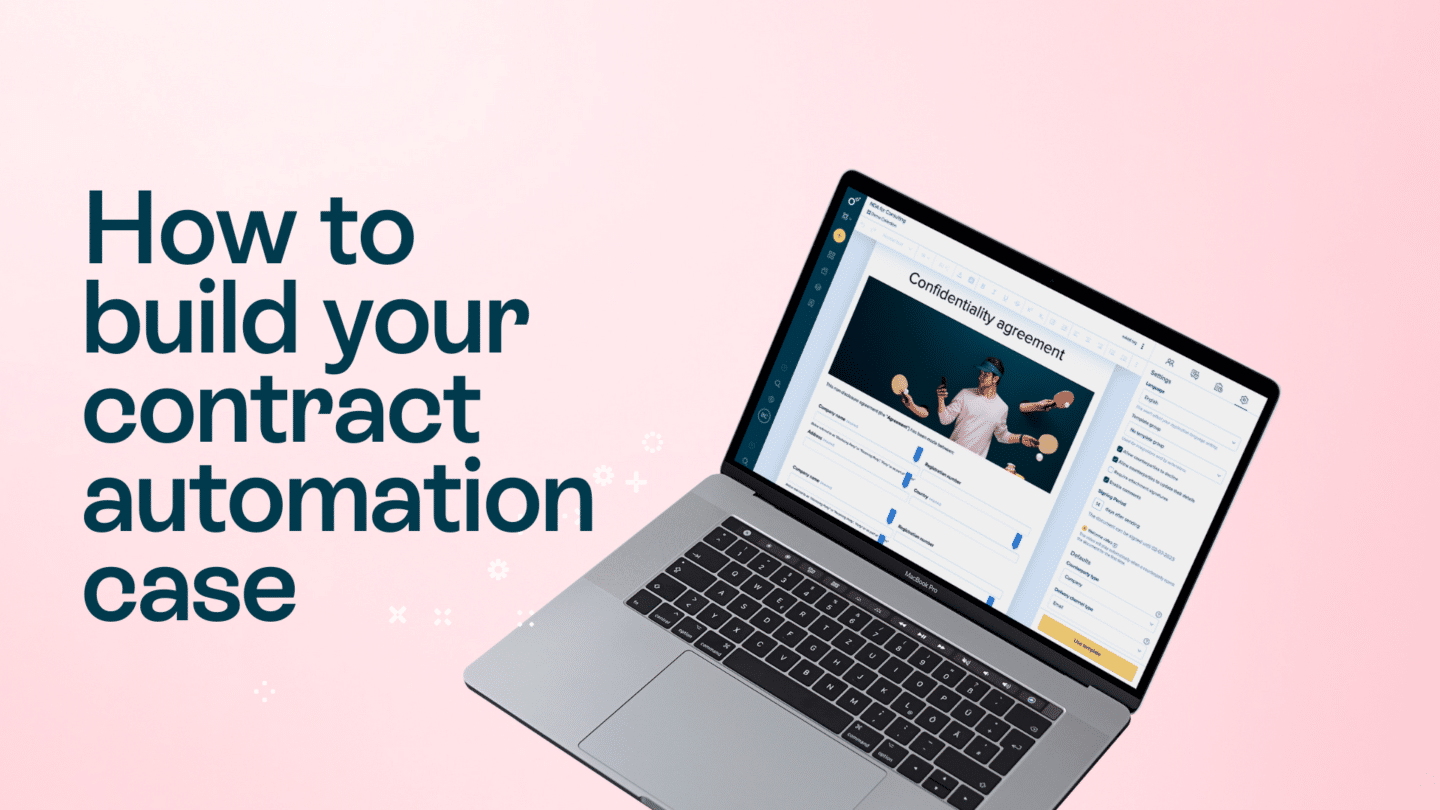Artificial Intelligence (AI) has revolutionized various industries, and the legal sector is no exception. One area where AI has made significant strides is contract generation. Traditionally, contract creation was a time-consuming and error-prone process that required a substantial amount of human effort. However, with the advent of AI, contract generation has become more efficient, accurate, and customizable, offering numerous benefits to businesses and legal professionals.
What role does AI play in contract generation?
At its core, AI refers to computer systems that can mimic human capabilities, such as learning, reasoning, and problem-solving. In the context of contract generation, AI is used to automate the process of drafting and validating contracts, reducing the burden on legal teams and streamlining the entire workflow.
AI has revolutionized the way contracts are generated in the legal industry. By leveraging advanced algorithms, machine learning, and natural language processing, AI-powered software can analyze and interpret legal language, generate contract templates, and draft customized agreements. This technology has significantly improved the efficiency and accuracy of contract generation, saving time and resources for legal professionals.
Read also: What is contract management? A complete guide

Defining AI in contract generation
In contract generation, AI refers to the use of intelligent software that utilizes advanced algorithms, machine learning, and natural language processing to analyze and interpret legal language, generate contract templates, and draft customized agreements.
AI-powered contract generation platforms have the ability to understand complex legal jargon and navigate through intricate legal frameworks. By analyzing vast amounts of legal data, these systems can identify patterns and extract relevant information to generate accurate and comprehensive contracts. This not only saves time but also ensures that contracts are drafted in compliance with legal requirements and industry standards.
The evolution of AI in legal tech
AI in contract generation has come a long way over the years. What started with simple document automation has now transformed into sophisticated platforms capable of understanding legal jargon, identifying potential risks, and offering tailored recommendations. This evolution has made AI-generated contracts increasingly reliable and accurate.
Initially, AI-powered contract generation systems focused on automating repetitive tasks, such as filling in standard clauses and templates. However, with advancements in machine learning and natural language processing, these systems have become more intelligent and capable of handling complex legal scenarios.
Modern AI-powered contract generation platforms can analyze vast amounts of legal data, including case law, regulations, and industry standards, to provide valuable insights and recommendations. By leveraging historical data and machine learning algorithms, these systems can identify potential risks and suggest alternative clauses or provisions to protect the interests of the parties involved.
Furthermore, AI in contract generation has also enabled the integration of contract management systems, allowing for seamless collaboration, version control, and tracking of contract lifecycles. This not only improves efficiency but also enhances transparency and accountability in contract management processes.
Read also: Announcing Write with AI by Oneflow

How does AI generate contracts?
AI-generated contracts rely on two key components: machine learning and natural language processing (NLP).
Machine learning algorithms enable AI systems to learn from patterns and data, improving their ability to handle complex legal documents. By analyzing vast amounts of contract data, AI systems can identify recurring clauses, understand their context, and generate accurate contract templates.
One of the main advantages of using machine learning in contract generation is its ability to adapt and improve over time. As AI systems process more contracts and gain more experience, they become more proficient in understanding the intricacies of legal language and can generate contracts that are increasingly accurate and tailored to specific needs.
Moreover, machine learning algorithms can also help in contract analysis. By automatically extracting key information from contracts, such as dates, parties involved, and obligations, AI systems can assist in contract review and due diligence, saving time and reducing the risk of human error.
The role of natural language processing
Natural language processing allows AI systems to understand and interpret human language. In contract generation, NLP enables AI to comprehend legal terms, identify clauses and their relationships, and generate coherent and contextually accurate agreements.
One of the challenges in contract creation is the ambiguity and complexity of legal language. NLP algorithms help AI systems overcome these challenges by analyzing the structure and semantics of sentences, identifying the meaning behind legal terms, and ensuring that the generated contracts are legally sound.
Furthermore, NLP can also assist in contract negotiation. AI systems equipped with NLP capabilities can analyze and compare different versions of contracts, identify potential discrepancies or conflicts, and suggest modifications to ensure that the final agreement meets the requirements and objectives of all parties involved.
Another area where NLP plays a crucial role is in contract management. AI systems can use NLP to extract relevant information from existing contracts, such as renewal dates, termination clauses, and payment terms, and organize it in a structured manner. This allows for efficient contract tracking, monitoring, and compliance management.
Read also: How to get the best out of AI in your contract work

What are some advantages of using AI for contract generation?
The benefits offered by AI-generated contracts are numerous and impactful, transforming contract management for businesses of all sizes.
Enhancing efficiency and productivity
AI can drastically reduce the time and effort required to create contracts. With automated contract generation, legal professionals can generate complex agreements in a fraction of the time it would take manually. This increased efficiency allows legal teams to focus on other critical tasks, improving overall productivity.
Reducing human error
Human error is an inherent risk in contract generation. Even experienced legal professionals can make mistakes and overlook crucial details. However, AI-generated contracts minimize such errors by applying consistent logic and utilizing advanced algorithms, thereby improving accuracy and reducing the risk of costly legal disputes.
Customization and scalability
AI systems can create highly customized contracts to address specific needs. By analyzing data from previous contracts and considering individual requirements, AI-generated contracts can ensure that agreements are tailored to the unique circumstances of each party. Additionally, AI platforms are scalable, allowing businesses to generate a large number of contracts without compromising accuracy or quality.
What are some potential challenges – and solutions to them?
While AI-generated contracts offer immense benefits, there are some challenges that organizations need to address.
Addressing data security concerns
As AI systems handle sensitive data, organizations must ensure robust security measures are in place. Encryption, secure access controls, and regular audits can help protect confidential information and mitigate the risk of data breaches.
Overcoming limitations in AI understanding
Although AI has made significant advancements, there are still limitations in its understanding of nuanced legal language and complex legal concepts. Legal professionals need to provide proper supervision and review AI-generated contracts to ensure compliance and accuracy.
Read also: How AI is changing contracts

The future of AI in contract management
The potential for AI in contract management is vast, and there are many exciting developments on the horizon.
Predicted trends and developments
In the future, AI-generated contracts are likely to become more sophisticated, thanks to advancements in machine learning and AI technologies. Predictive analytics and smart contract integration are expected to play a significant role, enabling proactive risk management and automating contract fulfillment processes.
Getting ready for AI in legal tech
Legal professionals must embrace AI and equip themselves with the necessary skills to navigate an AI-driven legal landscape. By understanding AI’s capabilities and limitations, legal teams can leverage this powerful tool to enhance their efficiency, accuracy, and overall effectiveness in contract management.
The key takeaways
AI-generated contracts have emerged as a game-changer in the legal industry. The ability to automate and streamline contract generation processes offers significant benefits, including enhanced efficiency, reduced errors, and increased customization. While challenges exist, such as data security and AI’s understanding of legal complexities, the future holds immense potential for AI in contract management. As organizations prepare for an AI-driven legal landscape, embracing these technologies will undoubtedly pave the way for a more efficient and effective contract management process.








